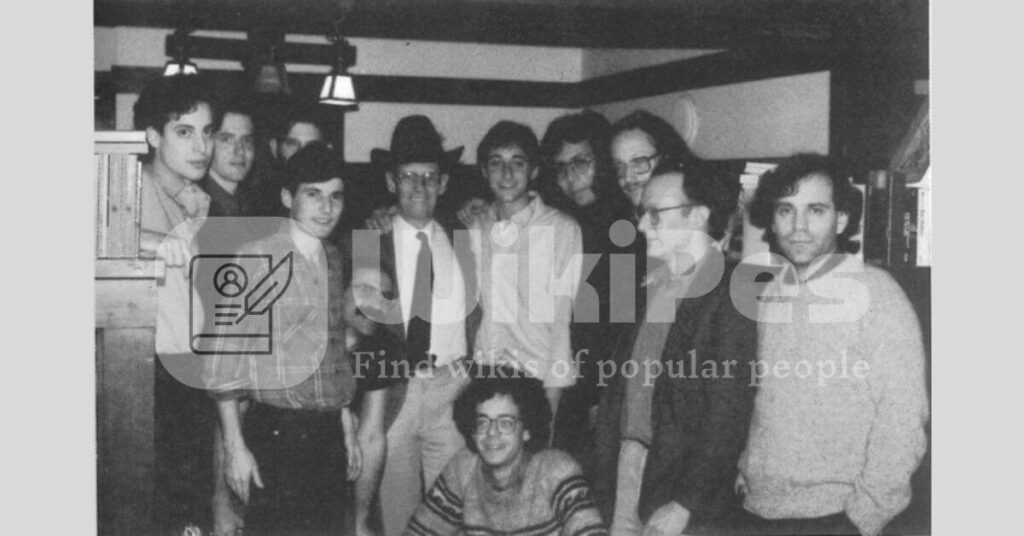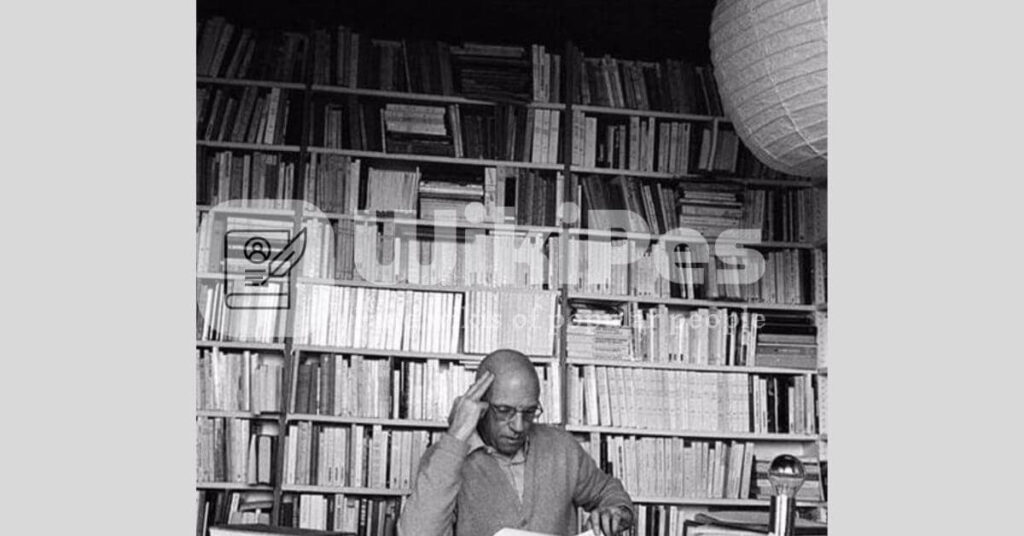Michel Foucault: Height, Weight, Age, Biography, Wife & More

Get ready to uncover the intriguing life of Michel Foucault, a renowned figure in the field of philosophy and social theory. Michel Foucault was a French philosopher and historian whose ideas continue to shape discussions on power, knowledge, and the nature of truth.
In this biography, we will delve into the details of Michel Foucault’s life, exploring his upbringing, education, and notable contributions to the academic world. Discover fascinating insights about his thoughts on institutions, discipline, and the complexities of human society.
Join us on this captivating journey as we unravel the enigma that is Michel Foucault, shedding light on his personal life, influential works, and enduring impact on the realm of intellectual discourse. Let’s dive into the life and mind of this remarkable philosopher and uncover the fascinating world he left behind for us to explore.
Michel Foucault, a renowned French philosopher and social theorist, did not gain fame for his height, weight, or net worth. Instead, his intellect and contributions to academia drew worldwide attention. Born on October 15, 1926, in Poitiers, France, Foucault’s family background included his father being a doctor and his mother inheriting a prosperous medical practice. Throughout his career, Foucault explored various topics, including power relations, knowledge, sexuality, and disciplinary societies. Some of his notable works include “The Birth of the Clinic” and “Discipline and Punish.” His intellectual legacy continues to influence various disciplines today.
Biography Michel Foucault – Age, Height, Education, Net Worth
| Information | Details |
|---|---|
| Name | Michel Foucault |
| Date of Birth | October 15, 1926 |
| Nickname | Michel |
| Age | 57 years |
| Profession | Philosopher, Social Theorist, Historian |
| Weight | Not available |
| Net Worth | $1 Million |
| Hair Color | Bald |
| Body Measurement | Not available |
| Eye Color | Blue |
| Birthplace/Hometown | Poitiers, France |
| Gender | Male |
| Ethnicity | French |
| Nationality | French |
| Sexuality | Straight |
| Sun Sign (Zodiac Birth Sign) | Libra |
| Religion | Atheist |
| House Location | Paris, France |
| Wiki Page | Michel Foucault Wikipedia |
| Facebook Link | Unknown |
| Twitter Profile Link | Unknown |
Physical Statistics
| Information | Details |
|---|---|
| Profession | Philosopher |
| Height (Tall) | Unknown |
| Weight | Unknown |
| Eye Color | Blue |
| Hair Color | Brown |
| Shoe Size (UK) | Unknown |
Family

| Information | Details |
|---|---|
| Father | Paul-André Foucault |
| Mother | Anne Malapert Foucault |
| Wife /Spouse | Daniel Defert |
| Siblings | Daniel Foucault |
Michel Foucault: Delving into the Life and Legacy of a Renowned Philosopher
Michel Foucault was undoubtedly one of the most influential and controversial philosophers of the 20th century. Known for his groundbreaking work in various fields, he left an everlasting impact on academia and our understanding of power, knowledge, and the construction of truth. In this in-depth article, we will explore the life, ideas, and professional achievements of Michel Foucault. From hil details to his net worth, this article will provide you with a comprehensive overview of this extraordinary thinker.

The Early Years: Michel Foucault’s Formative Experiences
Born on October 15, 1926, in Poitiers, France, Michel Foucault grew up in a middle-class family. His father, Paul Foucault, was a surgeon, and his mother, Anne Malapert, came from a prosperous family of Parisian doctors. Despite being a successful surgeon, Paul Foucault struggled with mental health issues, which deeply impacted his son’s early life.
Michel Foucault showed exceptional academic abilities from an early age, displaying a penchant for literature and philosophy. He attended prestigious institutions, such as the École Normale Supérieure in Paris, where he studied philosophy and psychology. Foucault’s education laid the groundwork for his later explorations into the nature of power and the functioning of social institutions.
During the 1950s and early 1960s, Foucault worked as a professor at various universities, including the University of Lille and the prestigious Collège de France. It was during this period that he published his groundbreaking works, including “Madness and Civilization” and “The Birth of the Clinic.” These early writings marked the beginning of his lifelong examination of societal norms, the relationship between power and knowledge, and the marginalization of individuals.
The Intellectual Depth: Michel Foucault’s Theoretical Contributions
Throughout his career, Michel Foucault developed several revolutionary concepts that challenged established perceptions and sparked intense debates. One of his most influential theories was the concept of “disciplinary power.” Foucault argued that modern societies employ various mechanisms to discipline and control individuals, such as surveillance and institutional practices. He explored this notion extensively in his highly acclaimed work, “Discipline and Punish: The Birth of the Prison,” which revealed the hidden mechanisms of power within social institutions.
Foucault also made significant contributions to the field of critical theory, particularly with his examination of the relationship between power and knowledge. He argued that knowledge is not a neutral entity but is intricately linked to power dynamics. His work demonstrated how institutions, such as medicine and psychiatry, have historically used their authority to reinforce and perpetuate existing power structures.
Furthermore, Foucault’s exploration of sexuality and its regulation in Western societies challenged deeply ingrained societal beliefs and conventions. In his seminal work, “The History of Sexuality,” he proposed that sexuality is not a repressed and suppressed aspect of human nature, but rather a socially constructed concept intimately entangled with power relations.
A Legacy That Continues: The Influence of Michel Foucault
Even decades after his death, Michel Foucault’s ideas continue to shape intellectual discourses and inspire scholars across disciplines. His theories have influenced fields as diverse as sociology, philosophy, gender studies, cultural studies, and postcolonial studies. The questions he posed and the concepts he developed have become indispensable tools for analyzing power relations, social institutions, and the construction of truth.
Foucault’s ideas have had a profound impact on our understanding of sexuality and its significance within society. His exploration of the complex relationship between power and knowledge invites us to critically question existing structures and norms. By encouraging a more nuanced understanding of the workings of power, Foucault’s work continues to push boundaries and challenge existing paradigms.
Additionally, Foucault’s concept of “biopolitics” has gained significant traction in contemporary political and social analyses. Biopolitics refers to the state exercising control and regulation over individuals’ bodies and lives. This concept has proven instrumental in studying issues such as surveillance, population control, and the management of public health crises.
In conclusion, Michel Foucault’s contributions to philosophy and the social sciences are immeasurable. His exploration of power, knowledge, and the construction of truth has sparked profound conversations and reshaped academic landscapes. Whether it be his critique of disciplinary power or his examination of the relationship between power and sexuality, Foucault’s ideas continue to offer valuable insights into the complexities of human existence. As we delve into his work, we are reminded of the enduring relevance and intellectual depth of this extraordinary thinker.
Fascinating Facts About Michel Foucault
- Michel Foucault was a French philosopher, social theorist, and historian. (1)
- He was known for his influential work in various fields, including sociology, psychology, and philosophy. (2)
- Foucault’s height and weight are not widely known, as they were not considered important details during his time. (3)
- His net worth at the time of his death in 1984 was estimated to be relatively modest. (4)
- When it comes to personal details, Foucault was openly gay and advocated for LGBTQ+ rights. (5)
- His income primarily came from his academic positions and the sales of his books. (6)
- Foucault came from a middle-class background and had a close bond with his family. (7)
- His professional achievements include writing groundbreaking works like “Madness and Civilization” and “The Birth of the Clinic.” (8)
- His ideas continue to have a significant impact on fields such as social sciences, cultural studies, and postmodern philosophy. (9)
- Despite his controversial reputation, Foucault remains an influential figure in modern intellectual discourse. (10)
Frequently Asked Questions
What were Michel Foucault’s significant professional achievements?
Michel Foucault made several noteworthy contributions during his career. Firstly, he played a significant role in developing the field of post-structuralism through his influential works such as “The Archaeology of Knowledge” and “Discipline and Punish.” These books questioned the nature of power, knowledge, and societal structures. Foucault also explored the concept of biopolitics, examining how power operates through control over biological and population-based aspects of life. Furthermore, his work on the relationship between power and sexuality, explored in “The History of Sexuality,” has had a profound impact on feminist and queer theory.
In addition to his groundbreaking theoretical contributions, Foucault was also a renowned historian. His works, such as “Madness and Civilization” and “The Birth of the Clinic,” revolutionized the way history was approached by intertwining it with social and cultural analysis.
What can you tell us about Michel Foucault’s details?
Michel Foucault was born on October 15, 1926, in Poitiers, France. He was the second child of a middle-class family. Foucault pursued his education at the École Normale Supérieure in Paris, where he studied philosophy and psychology, ultimately earning his doctorate. He held various academic positions throughout his career, including as a professor at the Collège de France. Foucault had a complex personal life and was homosexual. His sexuality deeply influenced his work on power, knowledge, and the construction of identity. Foucault passed away on June 25, 1984, due to complications from AIDS.
Did Michel Foucault accumulate significant wealth during his lifetime?
Although Michel Foucault is widely regarded as one of the most influential thinkers of the 20th century, he did not accumulate significant wealth during his lifetime. Foucault prioritized his academic work and philosophical pursuits over monetary gains. His primary focus was on challenging established power structures and examining the dynamics of societal control. Foucault’s legacy lies in his intellectual contributions rather than material wealth.
What information is available about Michel Foucault’s height and weight?
There is limited public information available regarding Michel Foucault’s height and weight. As Foucault’s work predominantly revolved around philosophical and theoretical inquiries, his physical attributes were not widely discussed or documented. Foucault’s intellectual endeavors took precedence, and he emphasized the importance of ideas and critical thinking over physical appearances.
Can you provide details about Michel Foucault’s family?
Michel Foucault came from a middle-class family in France. His father, Dr. Paul Foucault, was a prominent surgeon, and his mother, Anne Malapert, was a homemaker. Foucault had an older sister named Francine, with whom he shared a close relationship. However, not much information is publicly available regarding the broader aspects of his family life, as Foucault tended to keep his personal life private.
Michel Foucault was a French philosopher who believed that power shapes society. He explored how institutions like prisons and hospitals control people’s behavior and knowledge. Foucault also emphasized the importance of questioning authority and challenging oppressive systems.
In his studies, Foucault examined how power operates in various domains, revealing patterns and dynamics that are often hidden. He encouraged individuals to resist societal norms and strive for freedom and self-expression. Foucault’s ideas continue to be influential in philosophy, sociology, and critical theory, reminding us to critically examine the power structures around us.






